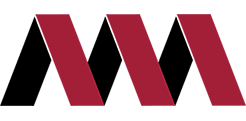This article can also be read on MasterControl’s GxP Lifeline.
Introduction: The COVID-19 pandemic created unprecedented challenges for quality and compliance professionals in the pharmaceutical, biotech, and medical device industries. Staying on course toward product approval and audit schedules is dependent on maintaining a robust compliance roadmap, which includes sponsoring GxP audits.
While remote audits have always been an option, the pandemic forced quality units to take a fresh look at how to use them effectively and in a manner that ensures reliable results.
Here are three key takeaways from what the past year has taught us about successful remote audits:
- Ensure the auditee has the capacity to host a remote audit prior to engaging a contracted auditor.
If your audit schedule depends on contracting external auditors, do not rely on them to determine if a site has the capacity to host a remote audit. The site needs to know in advance of receiving the audit agenda that they will be expected to share critical documents, provide a virtual tour, and ensure appropriate data security and IT support while the remote audit is in progress. If the site has agreed to a remote audit, but lacks adequate IT infrastructure, or has policies preventing virtual viewing of their facility and documentation, you may need to adjust the audit scope, or consider scheduling an onsite audit in the future.
- Set appropriate expectations around how much time a remote audit will take.
Remote audits have the potential to save time and money, especially if a site is in a remote location that requires multiple modes of transportation to get there. However, things can get bogged down quickly when an audit plan fails to factor in time for delays due to technology glitches, language differences, and challenges in coordinating the participation of people in different locations – and in different time zones.
Make sure the audit agenda is specific with respect to who needs to be online when, and that the site has made arrangements for IT support during live audit activities. Ask the site to prepare their personnel for the remote audit, and address concerns in advance, so that the auditor can expect full cooperation.
If the document management system of a site is 100% paper-based, the auditor will need more time for review of the documentation.
- Make sure a remote audit will give you what you need.
There is little difference between agendas for remote and onsite audits. However, you’ll want to make sure a remote audit is right for your situation:
- If you’re auditing a new vendor or need to check in on corrective actions from a past audit, you’ll want to determine if a remote audit will provide the information you need. A risk assessment can help you determine which sites are good fits for remote auditing.
- Onsite audits provide the auditor with first-hand visuals of how a facility is managed. Some things may not be captured with a video tour, and the auditor will lack the benefit of observing interactions among staff, non-verbal communications and eye-to-eye contact. Your risk assessment will tell you if performing an onsite audit is a better choice, so no stone goes unturned.
- Clinical investigator sites may not permit remote audits due to concerns around file sharing and patient confidentiality. Remote audits may present a significant scheduling challenge for study staff; work closely with the Principal Investigator and site monitor when planning the agenda.
- Make sure the sponsor (if a third party), as well as the relevant certification and accreditation bodies, will accept a remote audit.
- Choose an experienced auditor who understands the remote audit process, and who feels confident that they can provide a thorough audit, even without direct contact with the site and personnel.
Summary: Deciding when and how to schedule remote audits will depend on the readiness of the auditee, the skill of the auditor, and the scope of the audit. If you determine that remote auditing can play a role in meeting your audit program objectives, you’ll likely discover greater efficiencies in time and budget management along the way.
On April 21, 2021, MWA Consulting, Inc. is hosting a webinar titled, “Remote Auditing: Best Practices and Practical Suggestions. Register here.
